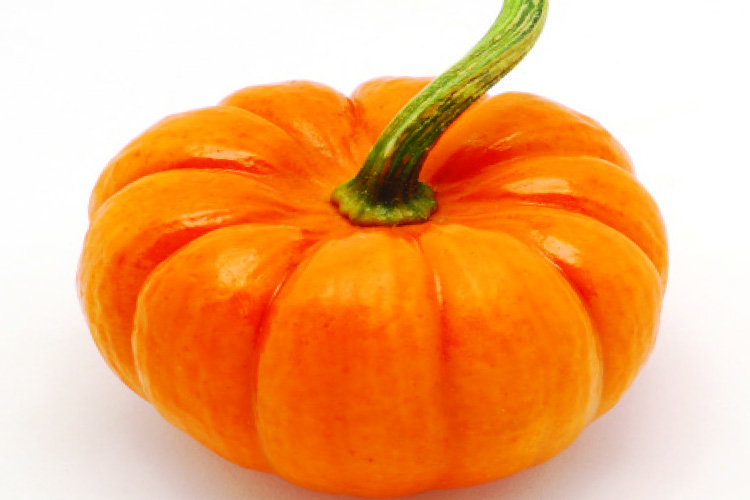Pumpkins are believed to have originated in Central America. Seeds from related plants have been found in Mexico, dating back over 7,000 years to 5,500 B.C. The word pumpkin originated from the Greek word Pepõn which means large melon. The English termed it pumpion or pompion. Its of the genus Cucurbita and the Cucurbitaceae family. The pumpkin is considered a fruit. Pumpkins are a member of the gourd family, which includes cucumbers, honeydew melons, cantaloupe, watermelons and zucchini.
- Pumpkin flesh contains L-tryptophan, a chemical compound that triggers feelings of well-being and happiness
- Pumpkins owe their bright orange colour to the high amount of carotenoids present in them. Carotenoids assist in staving off the free radicals in the body, and help in preventing premature ageing, cardiovascular diseases and other infections
- Pumpkin seed oil is high in phytosterols or plant-based fatty acids. Phytosterols can replace cholesterol in the body, and help in reducing the blood cholesterol levels. Phytosterols can lower the risk of prostate cancer
- High in Lutein & Zeaxanthin which protect the eyes against free radical damage and prevent formation of cataracts and degeneration of the eye tissues
- Pumpkin seeds also known as pepitas are a rich source of protein
- A rich source of vitamin A. Regular consumption of pumpkin (both seeds and flesh) can promote the health of your eyes and boost your immune system remarkably
- Both the pulp and seeds of pumpkin are rich in magnesium, required for the maintenance of bones and teeth
- Loaded with potassium and zinc. A potassium-rich diet can prevent onset of cardiovascular diseases and hypertension. Zinc is important for providing bone density support for people at risk for osteoporosis. It also boosts the immune system and promotes reproductive health
- Low in calories and is extremely high fibre content – effective for treating gastrointestinal disorders such as constipation, indigestion, etc. It also helps in lowering the LDL (bad) cholesterol levels in the blood and in regulating blood sugar levels
- Pumpkins are natural diuretics – help in flushing out the toxins and unwanted waste material from the body
- Vitamin C in pumpkin helps fight free radicals, improves immunity and promotes the production of collagen. It also protects against various forms of cancer
- The high amount of vitamin A, C and E as well as zinc present in pumpkin, make it a great choice for those who want a healthy and glowing skin
- Daily consumption of pumpkin seeds help to stimulate the kidneys and prevent the formation of calcium oxalate stones
- Regular consumption of pumpkin can protect against joint inflammation and arthritis
















